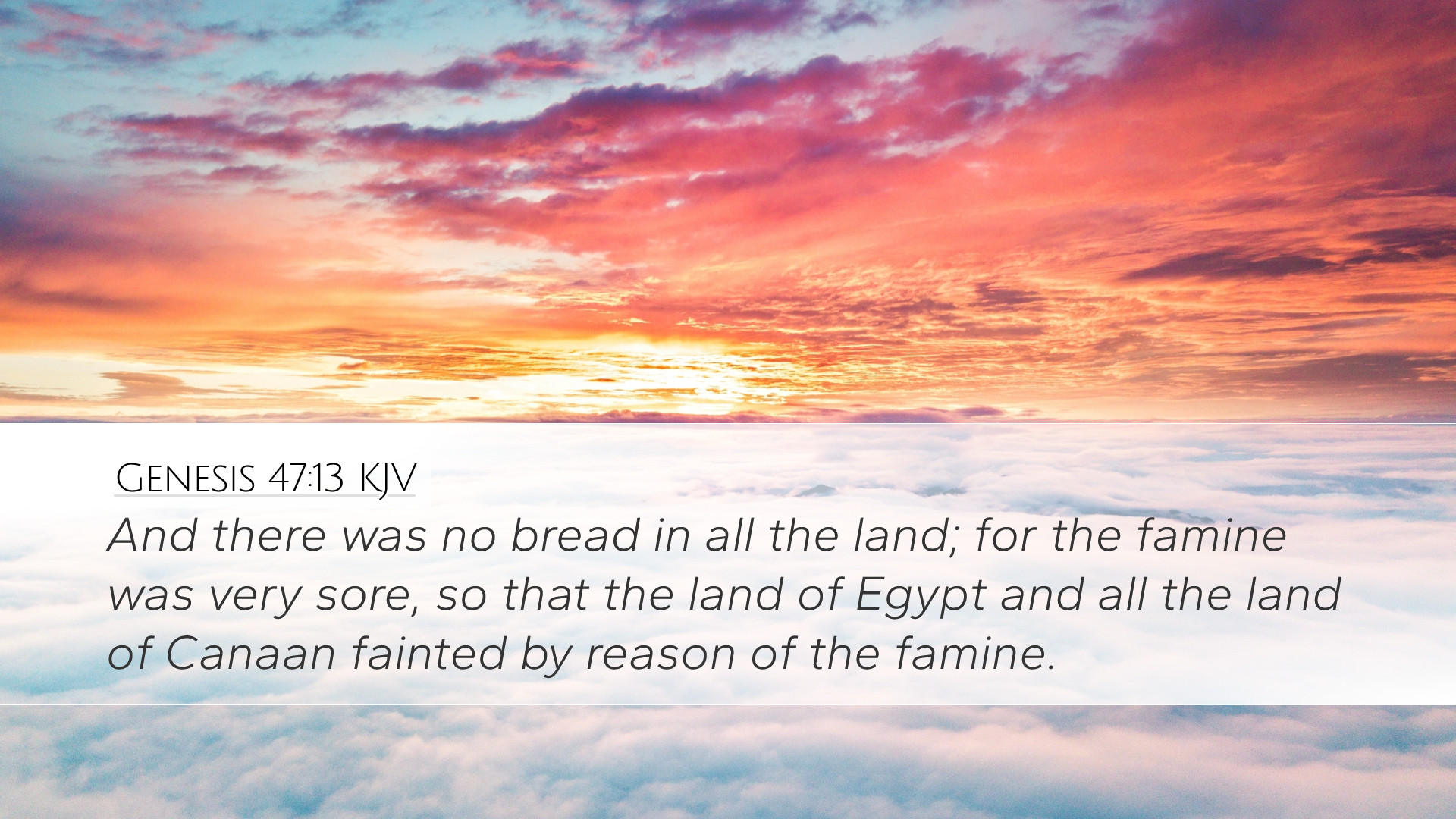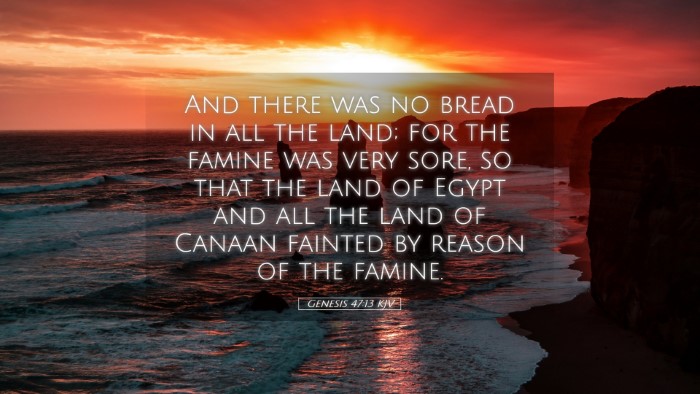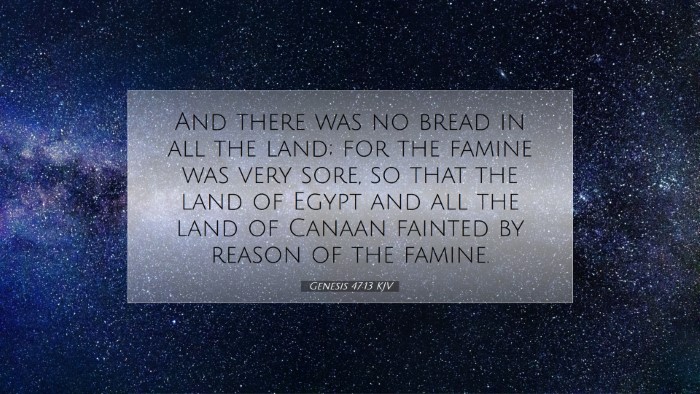Commentary on Genesis 47:13
Genesis 47:13 states: "And there was no bread in all the land; for the famine was very grievous, so that the land of Egypt and all the land of Canaan fainted by reason of the famine." This verse depicts a critical moment in the narrative of Joseph's governance in Egypt and reveals significant themes of divine providence, human suffering, and societal structures in a time of crisis.
Contextual Analysis
This verse comes at a pivotal point in the story of Joseph, who has risen from slavery and imprisonment to become the second most powerful man in Egypt. The impending famine, foretold by Joseph's interpretation of Pharaoh's dreams, had begun to take its toll on the land. This desperate situation illustrates both the severity of the famine and the effectiveness of Joseph's planning during the years of plenty.
Historical Background
Drawing from Matthew Henry's Commentary, one can appreciate how the historical context of Egypt during this period informs our understanding. The famine was not an isolated event; it was a time of severe drought that affected not only Egypt but also Canaan and surrounding regions. As Henry suggests, such famines serve as divine instruments, nudging humanity towards reliance on God and showcasing His sovereignty over nature.
Spiritual Implications
Albert Barnes provides insights on the spiritual implications of this famine. He notes that the phrase "there was no bread in all the land" symbolizes a profound human need. In times of spiritual and physical famine, mankind often turns to God for sustenance and mercy. This observation may compel pastors and theologians to reflect on the contemporary 'famines' experienced in their communities—whether they are spiritual, emotional, or social. In such crises, the faithful are called to intercede and actively provide sustenance to the needy.
Character Study
Joseph's character is a focal point in this text. In the midst of the crisis, he was a figure of wisdom and foresight. Adam Clarke's Commentary highlights that Joseph's actions during this grave period were not only to save Egypt but also to preserve his family. Clarke argues that the mechanism set by Joseph for grain distribution—whereby people would exchange their money, livestock, and ultimately land for sustenance—reveals both the nobility and the pragmatism of his governance. Joseph's leadership demonstrates the balance of compassion and shrewdness, characteristics essential for effective pastoral leadership.
Theological Reflections
The famine embodies deeper theological reflections on human dependency. As the land of Canaan 'fainted by reason of the famine,' we are reminded of the spiritual state of humanity—weak, vulnerable, and in need of divine intervention. Matthew Henry writes of the implications of such famine scenarios, stating, "When men are brought low, they are often brought to seek the Lord." This positions the narrative of Genesis not merely as an historical account, but as a timeless message that resonates with every generation.
- Human Suffering: The prevalence of suffering is a constant theme throughout Scripture, encouraging believers to recognize their reliance on God's providence.
- Divine Providence: God's providential hand orchestrated the events leading to Joseph's rise, ensuring the survival of many even in dire circumstances.
- Community Responsibility: The famine invites readers to consider their role in supporting their community in times of distress, reflecting Christ's love and sacrifice.
Practical Applications
In applying the lessons from Genesis 47:13, pastors and theologians can foster discussions that delve into the nature of human need and divine provision. They may consider questions such as:
- How can the church serve as a source of hope during societal 'famine' situations?
- What practical steps can be taken to alleviate the suffering both within and outside the church community?
- How does understanding God's sovereignty in desperate circumstances alter our response to personal and communal crises?
Conclusion
Genesis 47:13 serves as a powerful reminder of both the fragility of human existence and the unwavering providence of God. The insights from Matthew Henry, Albert Barnes, and Adam Clarke illustrate that even in dire situations, there exists a call to faith and action. As pastors, students, and scholars engage with this text, they can find encouragement to lead, nourish, and support those who, like the inhabitants of Egypt and Canaan, face famines in their lives.


